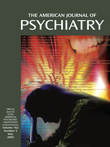To the Editor: In response to our administrative health care database study comparing the risks of cerebrovascular accidents in elderly patients treated with either atypical or typical antipsychotics, Dr. Zhao et al. describe the lack of histological damage caused by risperidone treatment in aged rats with preexisting cortical infarcts. We applaud these investigators’ “bedside to bench” approach and find the results reassuring in light of the lack of association between the use of atypical antipsychotics and cerebrovascular accidents noted in our population-based cohort study. In the second letter, Dr. Raivio et al. report that in a small group of elderly patients with dementia or delirium, the use of atypical antipsychotics was actually associated with a 60% reduction in the rate of death. Although this study did not address the frequency of cerebrovascular adverse events, it too provides converging evidence that the risk of life-threatening events directly attributable to atypical antipsychotics may be overstated.
Concerns about the association between atypical antipsychotic use and cerebrovascular adverse events in elderly dementia patients based on data from randomized, controlled trials persist (Wooltorton, 2002; reference
1), and prescribing information for risperidone and olanzapine have been modified to reflect this possibility. Possible biological mechanisms to account for this association might include thromboembolic effects, cardiovascular effects (such as orthostatic hypotension and arrhythmias), hyperprolactinemia leading to atherosclerosis, and excessive sedation, resulting in dehydration and hemoconcentration. To date, there are few data to support these mechanisms
(2). Dr. Zhao et al. suggest a number of methodological problems in the previous studies that raise the possibility of an association, including small numbers of patients, the effect of comorbid medical illness (especially preexisting cerebrovascular disease), and concomitant medication use. The latter is particularly poignant given the recent withdrawal of rofecoxib from the market because of higher rates of serious cardiovascular thromboembolic effects, including stroke. It is unclear what role such medications may have played in the randomized, controlled trials of antipsychotics.
Finally, Dr. Zhao et al. raise the concern that warnings such as those of the Committee on Safety of Medicines in the United Kingdom to avoid risperidone and olanzapine use in elderly dementia patients
(3) may lead to switching to typical antipsychotics, such as haloperidol. Besides their well-documented tendency to cause both acute and long-term extrapyramidal symptoms (e.g., tardive dyskinesia), drugs such as haloperidol have been shown to negatively influence motor recovery in poststroke patients
(4) and may not confer any reduced risk of cerebrovascular accidents in an elderly population relative to atypical antipsychotics (as in our article).
Further studies focusing on potential mechanisms may help to clarify the association between atypical antipsychotic use and cerebrovascular adverse events and ultimately define subgroups of patients at increased risk in whom benefits of therapy might outweigh the risks.

